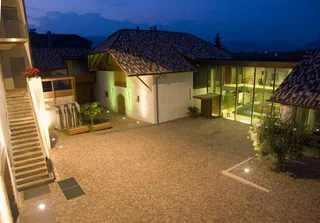
Duett fashion
S. Paolo/St. Pauls - Appiano/Eppan, Eppan an der Weinstaße/Appiano sulla Strada del Vino, Alto Adige Wine Road

S. Paolo/St. Pauls - Appiano/Eppan, Eppan an der Weinstaße/Appiano sulla Strada del Vino, Alto Adige Wine Road

1/3
S. Michele/St. Michael - Appiano/Eppan, Eppan an der Weinstaße/Appiano sulla Strada del Vino, Alto Adige Wine Road

S. Michele/St. Michael - Appiano/Eppan, Eppan an der Weinstaße/Appiano sulla Strada del Vino, Alto Adige Wine Road

S. Michele/St. Michael - Appiano/Eppan, Eppan an der Weinstaße/Appiano sulla Strada del Vino, Alto Adige Wine Road

Firmiano/Sigmundskron, Eppan an der Weinstaße/Appiano sulla Strada del Vino, Alto Adige Wine Road

Colterenzio/Schreckbichl, Eppan an der Weinstaße/Appiano sulla Strada del Vino, Alto Adige Wine Road

1/4
S. Michele/St. Michael - Appiano/Eppan, Eppan an der Weinstaße/Appiano sulla Strada del Vino, Alto Adige Wine Road

Cornaiano/Girlan, Eppan an der Weinstaße/Appiano sulla Strada del Vino, Alto Adige Wine Road

S. Michele/St. Michael - Appiano/Eppan, Eppan an der Weinstaße/Appiano sulla Strada del Vino, Alto Adige Wine Road

1/5
S. Michele/St. Michael - Appiano/Eppan, Eppan an der Weinstaße/Appiano sulla Strada del Vino, Alto Adige Wine Road

S. Paolo/St. Pauls - Appiano/Eppan, Eppan an der Weinstaße/Appiano sulla Strada del Vino, Alto Adige Wine Road

Ganda/Gand - Appiano/Eppan, Eppan an der Weinstaße/Appiano sulla Strada del Vino, Alto Adige Wine Road

1/2
St. Michael/S. Michele - Eppan/Appiano, Eppan an der Weinstaße/Appiano sulla Strada del Vino, Alto Adige Wine Road

S. Michele/St. Michael - Appiano/Eppan, Eppan an der Weinstaße/Appiano sulla Strada del Vino, Alto Adige Wine Road

St. Michael/S. Michele - Eppan/Appiano, Eppan an der Weinstaße/Appiano sulla Strada del Vino, Alto Adige Wine Road

1/4
Cornaiano/Girlan, Eppan an der Weinstaße/Appiano sulla Strada del Vino, Alto Adige Wine Road

St. Michael/S. Michele - Eppan/Appiano, Eppan an der Weinstaße/Appiano sulla Strada del Vino, Alto Adige Wine Road

S. Paolo/St. Pauls - Appiano/Eppan, Eppan an der Weinstaße/Appiano sulla Strada del Vino, Alto Adige Wine Road

Missiano/Missian, Eppan an der Weinstaße/Appiano sulla Strada del Vino, Alto Adige Wine Road

Gaido/Gaid, Eppan an der Weinstaße/Appiano sulla Strada del Vino, Alto Adige Wine Road

Pigano/Pigeno, Eppan an der Weinstaße/Appiano sulla Strada del Vino, Alto Adige Wine Road

1/2
Ganda/Gand - Appiano/Eppan, Eppan an der Weinstaße/Appiano sulla Strada del Vino, Alto Adige Wine Road

St. Michael/S. Michele - Eppan/Appiano, Eppan an der Weinstaße/Appiano sulla Strada del Vino, Alto Adige Wine Road

1/6
Cornaiano/Girlan, Eppan an der Weinstaße/Appiano sulla Strada del Vino, Alto Adige Wine Road

St. Michael/S. Michele - Eppan/Appiano, Eppan an der Weinstaße/Appiano sulla Strada del Vino, Alto Adige Wine Road

Colterenzio/Schreckbichl, Eppan an der Weinstaße/Appiano sulla Strada del Vino, Alto Adige Wine Road

S. Paolo/St. Pauls - Appiano/Eppan, Eppan an der Weinstaße/Appiano sulla Strada del Vino, Alto Adige Wine Road

1/7
Cornaiano/Girlan, Eppan an der Weinstaße/Appiano sulla Strada del Vino, Alto Adige Wine Road

Ganda/Gand - Appiano/Eppan, Eppan an der Weinstaße/Appiano sulla Strada del Vino, Alto Adige Wine Road

1/8
S. Michele/St. Michael - Appiano/Eppan, Eppan an der Weinstaße/Appiano sulla Strada del Vino, Alto Adige Wine Road